About the Early Careers Program
Babcock’s Early Careers Program has a range of pathways that can help you launch your career, gain first-hand experience, and develop the knowledge and skills that could open up a world of opportunities. Whether you choose to join us as a graduate, apprentice or an intern, you’ll gain a range of experiences, building the knowledge and skills to complement your studies and help you succeed in your chosen profession.
Early Careers participants gain access to additional perks including paid leave to attend exams and participate in further studies, as well as reimbursements for course materials, external studies and membership fees for relevant professional bodies. Participants will also be provided with a role-specific toolkit and have the opportunity to represent Babcock as a STEM Ambassador. Conditions apply.
We look forward to working with you to fulfil our Purpose of creating a safe and secure world, together.
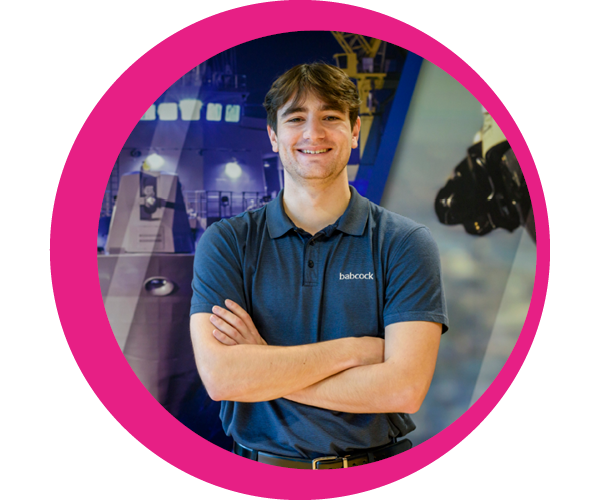
Graduates
Completing a degree takes determination to ‘own & deliver’ and Babcock can provide a comprehensive program for graduates looking to put their studies to work.
This pathway offers graduates recently-qualified in industry-recognised qualifications, such as engineering and project management, a two-year program which focuses on developing your technical and leadership capability to set you up for a successful career at Babcock.
To provide a fully-rounded experience, the program includes personal development modules, networking opportunities and peer group activities.
Babcock’s Graduate Program is run over two (2) years, and focuses on building your capability through blended learning and development focused on technical, leadership, business enabling skills.
From day one you’ll be part of our community of business and industry leaders who are challenging the status quo. Our working environment is all about collaboration and you will become an integral part of helping us solve important problems together. Options are individually tailored to your skills and developmental needs, business requirements and individual preferences.
Following the successful completion of the program, you will be placed into a position within the business so that you can continue growing your prosperous career.
Areas of study:
- Engineering – Mechanical, Electronics, Electrical, Systems, Software, Mechatronic Engineering and Naval Architecture.
- Project Management – Project Management, Business, Commerce, Economics and Construction.
- Health Safety & Environment – Environmental Science, Environmental Management, Environmental Engineering.
- Procurement and Supply Chain – Procurement, Supply Chain and Logistics.
- Other – Commerce, Finance, Business, Law, Business Management, IT, Computer Science, Journalism, Media, Politics or International Relations.
The program provides a collaborative and engaging work environment that bridges the gap between formal education and the workplace.
Opportunity Locations:
- Adelaide, South Australia
- Melbourne, Victoria
- Perth, Western Australia
- Auckland, New Zealand
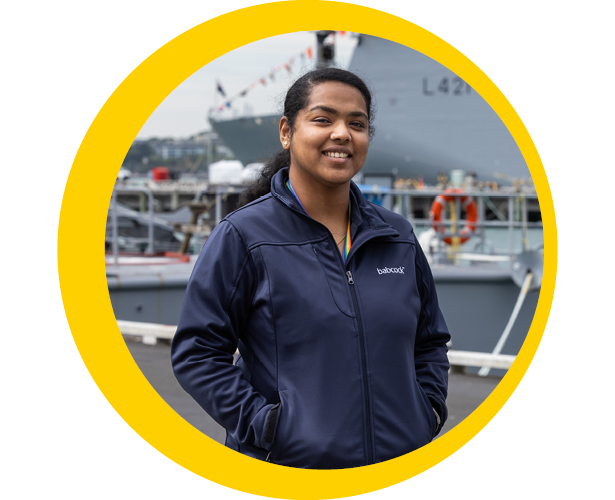
Interns
Springboard into the Graduate program for 2027.
Babcock provides an opportunity for students in their penultimate year of an industry-recognised qualification (such as a university degree) a chance to gain real-life experience in their chosen field, before they graduate from their studies.
We offer 12-week Internships that align with the academic calendar and qualification requirements.
Upon completion of the Internship, individuals may also be offered part-time work in their final year of study, plus ongoing support on their studies and projects, leaving them well-placed to secure a position in Babcock’s two-year Graduate Program.
Our paid Internship Program runs for twelve (12) weeks during November to February. This program provides opportunities to get real on-the-job experience with diverse teams who will support, encourage and help you build your technical and enabling skills.
Through your own curiosity, you will build your own professional network with a range of technical experts and graduates.
Following the successful completion of the program, Babcock will discuss career pathway opportunities as an undergraduate or securing a placement onto the following Graduate Program.
Areas of study:
- Engineering – Mechanical, Electronics, Electrical, Systems and Manufacturing
- Project Management – Project Management, Business, Commerce, Economics and Construction
- Operational Excellence – Business Management, Business Administration, Computer Science, Mathematics, Statistics, Procurement, Supply Chain and Logistics
- Health Safety & Environment – Environmental Science, Environmental Management, Environmental Engineering
- Procurement & Supply Chain
- Other – Commerce, Finance, Business, Law, Business Management, IT, Computer Science, Journalism, Media, Politics or International Relations.
This can be a springboard into the Graduate Program for the November 2025 intake (note: this is not guaranteed and will be based on performance).
Locations
- Adelaide, South Australia
- Melbourne, Victoria
- Perth, Western Australia
- Auckland, New Zealand
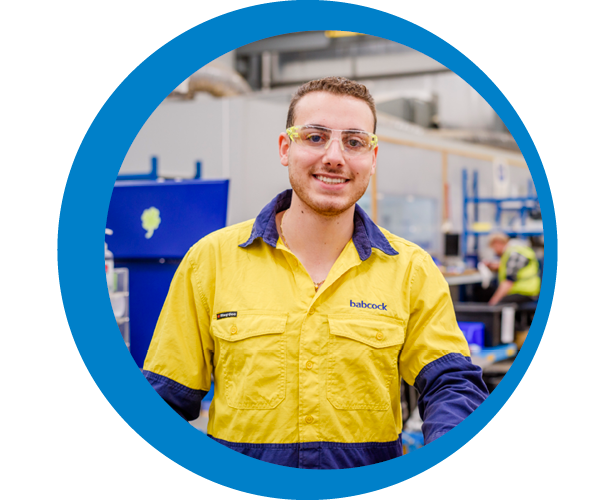
Apprentices
Developing skills through hands-on experience combined with external training is a great way to ‘think: outcomes’ and Babcock can guide apprentices on their journey.
This pathway is for people who want to achieve professional qualifications in technical and business fields through academic and work-based learning.
Aligned with industry standards, apprentices at Babcock will learn throughout their program, with potential to work on new and emerging technologies.
Our recruitment process
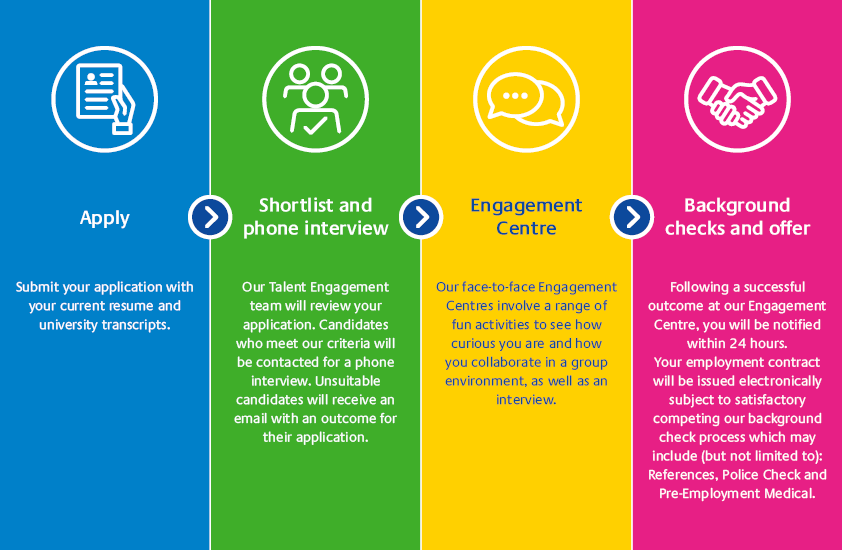
Disciplines
Expect to work on every kind of project across our organisation – from design to construction, in-service support and maintenance and capability enhancement projects. Whatever the task at hand, risks need to be identified and managed, stakeholder requirements satisfied, and the whole assignment planned and delivered on time and to budget. Along the way, you’ll develop strong relationships with a range of colleagues in areas such as: engineering, commercial, financial and procurement functions. That’s because watching our finances is as important as watching the clock when delivering a project. With that professional network behind you, you’ll have everything you need to tackle anything that comes your way.
As part of a multi-disciplinary team, you’ll need to look at the big picture and understand how the software interacts with the system and its interfaces. You could be working on a huge variety of different projects. You could focus on something as small as an audio console for a communications project. Or you could work on something as large as a handling system on a world-class ship. Whatever you work on, you may be closely involved in the design, specification, implantation and testing of software and associated systems.
The activities in this area are many and varied. You might be helping us design a variety of cutting-edge floating vessels and structures, or investigating the finer points of resistance, propulsion and access. What’s certain is that you’ll work with – and learn from – some of the most respected naval architects in the world. You’ll learn how to analyse and design various aspects of floating vessels and structures (including hull form, arrangement, stability, structures, resistance, propulsion and access). In the process, you’ll make a real contribution to projects too. Previous graduates here have worked on everything from naval ships and submarines to small boats and offshore platforms. They have helped us develop unmanned surface vessel support solutions and even been involved in next generation submarine pre-concept engineering.
You could work in anything from mechanical design right through to manufacture, installation and decommissioning. Equally, you could work on analysis and problem-solving for existing equipment or systems. What’s not in doubt is that there will be plenty of onsite work, such as implementing designs, finding solutions to installation issues, and liaising with designers and office-based engineers. You’ll also get involved in project management too, engaging with stakeholders, planning delivery and ensuring projects run to budget and program.
Your placements could take you to any part of our business. You might be managing elements of huge bids, supporting commercial contracts – including legal aspects – managing governance and compliance activities, or spotting new opportunities as part of an ambitious business development team across our Aviation, Nuclear and Marine sectors. And, once you have a handle on what we’re about and how we do things, you’ll specialise in an area that suits your strengths and ambitions.
Working in a discipline of such fundamental importance means that you could work on anything. You could be on the team designing submarines, refitting warships, or working to enhance high frequency communications for our defence forces. The possibilities are endless. Day-to-day, you could find yourself working on electrical power distribution or electrical control and instrumentation, involving both analogue and digital systems. Our graduates get involved in everything from concept design and AutoCAD layouts to testing, installation, commissioning and handover to clients. You may even find yourself managing projects and leading your own team.
You could have the opportunity to work across our regional operations in support of overarching Procurement & Supply Chain strategy development, or directly in support of our delivery Programs across Australia and New Zealand on the ground with our operations teams. Getting involved in major contract awards, negotiating the best possible deals alongside experienced leaders in Aerospace & Defence, coordinating the delivery of equipment for critical programs, and exposure to a wide range of Marine, Aviation, Mission Systems and Nuclear professionals that have worked with Babcock for years. Add to that the opportunity to work as part of the global Babcock P&SC community that allows you to step up into the international arena, in line with your strengths and commitment to progressing your career.
Careers Events
Our friendly Talent Engagement team members will be exhibiting at the following careers events. Stop by and say hi to the team who are eager to meet and greet as well as answer any questions you may have.
